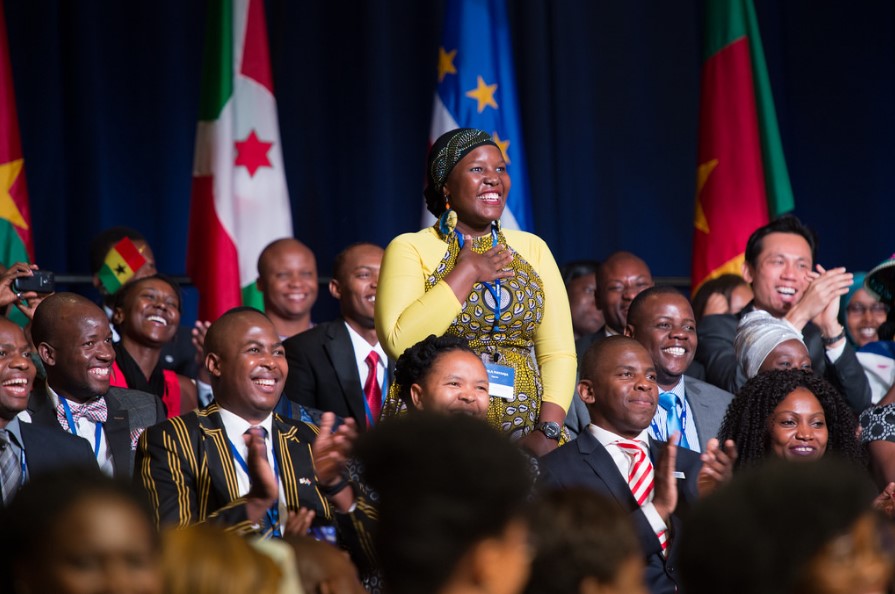By Karen Michael
Lubbock Avalanche-Journal, Texas
WWR Article Summary (tl;dr) Twenty-five students who are young leaders from several countries in Africa are taking part in a six-week academic and leadership institute at Texas Tech.
Lubbock Avalanche-Journal, Texas
Ettamba Agborndip is a medical doctor who has educated thousands in her home country of Cameroon about maternal and child health. Through her own organization, she works to create health awareness of communicable and non-communicable diseases.
But for the last three weeks, she has been at Texas Tech studying in a leadership program funded by the U.S Department of State, the Mandela Washington Fellowship of the Young African Leaders Initiative.
Twenty-five students who are young leaders from several countries in Africa are taking part in a six-week academic and leadership institute. Tech was one of 38 colleges and universities in the U.S. chosen for the program.
Agborndip hopes to continue community education in a bid to improve maternal and child health in Cameroon when she returns, but she said Thursday after a panel discussion about the relationship between the U.S. and Africa that she has learned other lessons in Lubbock.
“One of the things that I personally have picked up from this program is dedication to service,” Agborndip said.
“The people who live here in Lubbock, Texas, are very dedicated to the development of this community. So everybody invests their money, their time, their resources to the development of the community.”
Agborndip said she has observed that from a young age, children in Lubbock are taught to give back to the community.
“This is something that we don’t practice a lot back home, and is something that I personally am going to take back home, to educate people right from the tender ages,” she said.
She said the leadership program has been amazing, and it has opened her mind and those of her classmates.
Another of the fellows in the program, Sherifath Mama Chabi, of Benin, said she was impressed by finding out about community services and how they are organized.
Back in her country, she has two years of experience in human nutrition, and is working to improve nutrition among youths and the poor.
She said she admires how people help the community and the poor in this country.
buy amoxicillin generic buy amoxicillin online no prescription
“I’m just learning and learning,” Chabi said.
The two women listened to former Ambassador Tibor P. Nagy Jr., who serves as vice provost for international affairs at Tech, and Louis Mazel, a career Foreign Service Officer who is currently director of the Office of African Regional and Security Affairs for the State Department. The two men talked about their experiences working with the State Department in Africa, and their viewpoints of how the U.S. interacts with Africa.
Nagy said the U.S. spends less in Africa and has fewer people in Africa to work with people there.
“We have junior people doing senior jobs,” Nagy said, noting that he was given assignments at the age of 30 in Africa that would never have been given to him in Europe at the same time.
“Our Africa policy has been tinged with a bit of paternalism,” he said, noting that it has caused problems. “The United States government has always looked at Africa as a problem, a problem that needed solutions. We always have to choose between a long-term strategy in Africa and responding to short-term crises. And in almost every case, it’s the short term that has won over the long-term. There were never enough resources even to address the most serious problems, such as Somalia.”
Mazel went through a summary of how each presidential administration has treated the African continent, but he said it’s not clear how President Donald Trump will work with Africa.
“President Trump hasn’t spoken a lot about Africa, so the policy is not clear,” he said.
But looking at Trump’s other policies, he said he believes there will be a strong focus on combating terrorism, as well as some cuts in refugees.
“President Trump is a businessman,” Mazel said, noting the president looks at things with an eye toward getting a better deal.
“I think he will encourage American companies to look for more opportunities to invest in the African continent,” he said.














































































































































































































































































































































































